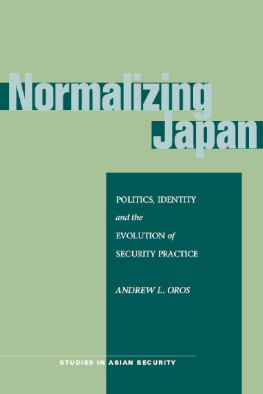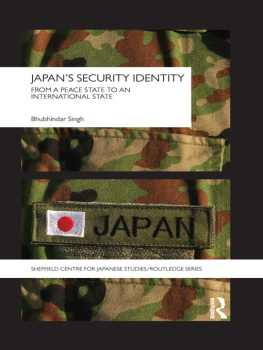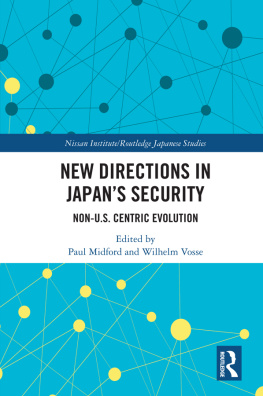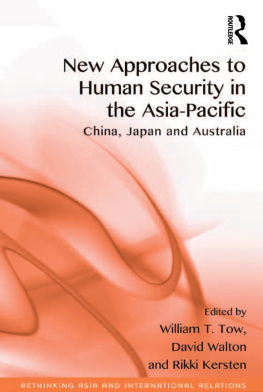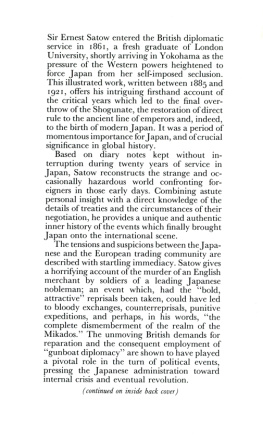Andrew Oros - Normalizing Japan: Politics, Identity, and the Evolution of Security Practice
Here you can read online Andrew Oros - Normalizing Japan: Politics, Identity, and the Evolution of Security Practice full text of the book (entire story) in english for free. Download pdf and epub, get meaning, cover and reviews about this ebook. year: 2009, publisher: Stanford University Press, genre: Politics. Description of the work, (preface) as well as reviews are available. Best literature library LitArk.com created for fans of good reading and offers a wide selection of genres:
Romance novel
Science fiction
Adventure
Detective
Science
History
Home and family
Prose
Art
Politics
Computer
Non-fiction
Religion
Business
Children
Humor
Choose a favorite category and find really read worthwhile books. Enjoy immersion in the world of imagination, feel the emotions of the characters or learn something new for yourself, make an fascinating discovery.
- Book:Normalizing Japan: Politics, Identity, and the Evolution of Security Practice
- Author:
- Publisher:Stanford University Press
- Genre:
- Year:2009
- Rating:5 / 5
- Favourites:Add to favourites
- Your mark:
- 100
- 1
- 2
- 3
- 4
- 5
Normalizing Japan: Politics, Identity, and the Evolution of Security Practice: summary, description and annotation
We offer to read an annotation, description, summary or preface (depends on what the author of the book "Normalizing Japan: Politics, Identity, and the Evolution of Security Practice" wrote himself). If you haven't found the necessary information about the book — write in the comments, we will try to find it.
Andrew Oros: author's other books
Who wrote Normalizing Japan: Politics, Identity, and the Evolution of Security Practice? Find out the surname, the name of the author of the book and a list of all author's works by series.
Normalizing Japan: Politics, Identity, and the Evolution of Security Practice — read online for free the complete book (whole text) full work
Below is the text of the book, divided by pages. System saving the place of the last page read, allows you to conveniently read the book "Normalizing Japan: Politics, Identity, and the Evolution of Security Practice" online for free, without having to search again every time where you left off. Put a bookmark, and you can go to the page where you finished reading at any time.
Font size:
Interval:
Bookmark:
East-West Center
Princeton University
Georgetown University
University of Bristol
McGill University
Harvard University
Center for Global Studies, Mumbai
London School of Economics
Princeton University
Brookings Institution
Academia Sinica
Oxford University
Princeton University
Indiana University, Bloomington
University of Pennsylvania
Georgetown University, CSIS
University of California, San Diego
Princeton University
Chuo University
University of British Columbia
University of California, San Diego
Cornell University
Oxford University
Korea University
Dartmouth College
The George Washington University
Wellesley College
China Foreign Affairs University
Australian National University
Jawaharlal Nehru University
CSIS, Jakarta
Fudan University
A SERIES SPONSORED BY THE EAST-WEST CENTER
Distinguished Senior Fellow, East-West Center
Stanford, California
All rights reserved
Normalizing Japan: politics, identity, and the evolution of security practice /
Andrew L. Oros.
p. cm. (Studies in Asian security)
Includes bibliographical references and index.
ISBN 978-0-8047-0029-0 (cloth : alk. paper)
1. Security, InternationalJapan. 2. MilitarismJapan. I. Title.
JZ6009.J3076 2008
355'.033052 DC22 2007038750
Font size:
Interval:
Bookmark:
Similar books «Normalizing Japan: Politics, Identity, and the Evolution of Security Practice»
Look at similar books to Normalizing Japan: Politics, Identity, and the Evolution of Security Practice. We have selected literature similar in name and meaning in the hope of providing readers with more options to find new, interesting, not yet read works.
Discussion, reviews of the book Normalizing Japan: Politics, Identity, and the Evolution of Security Practice and just readers' own opinions. Leave your comments, write what you think about the work, its meaning or the main characters. Specify what exactly you liked and what you didn't like, and why you think so.

